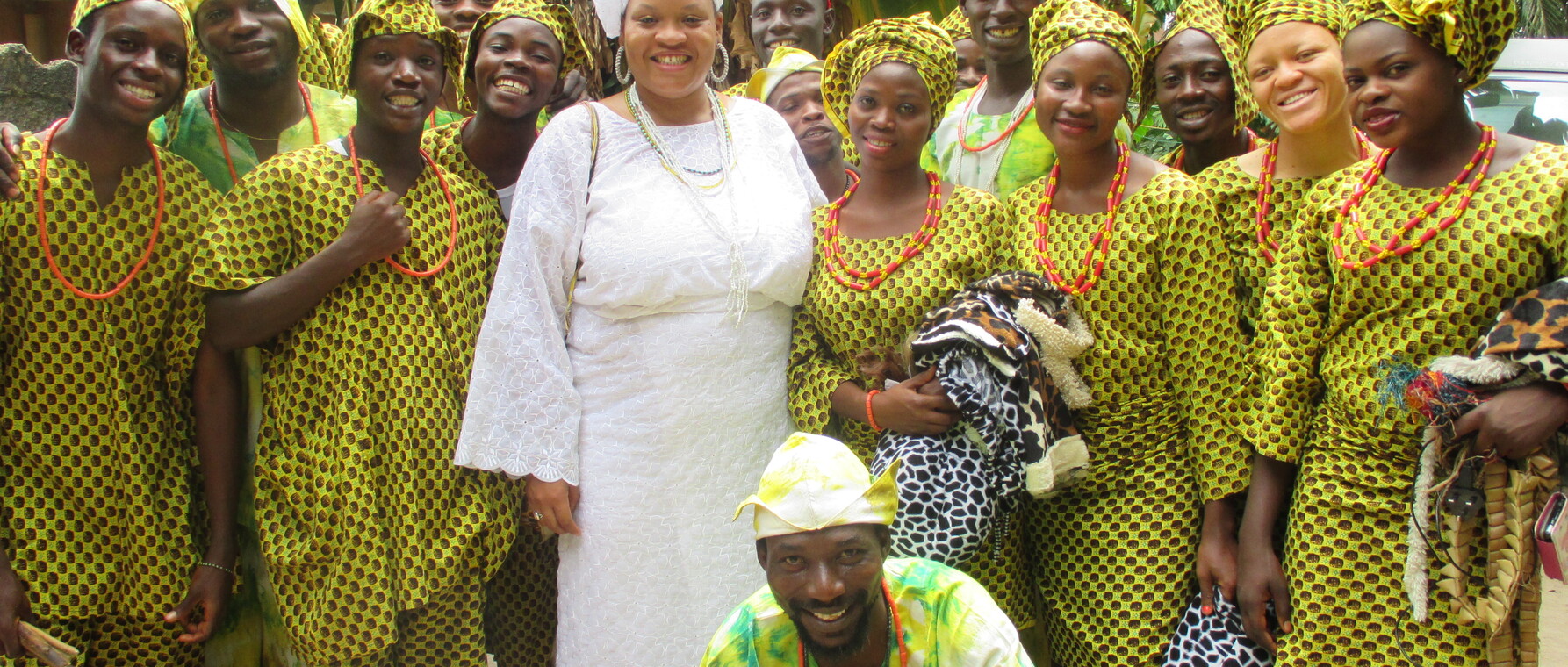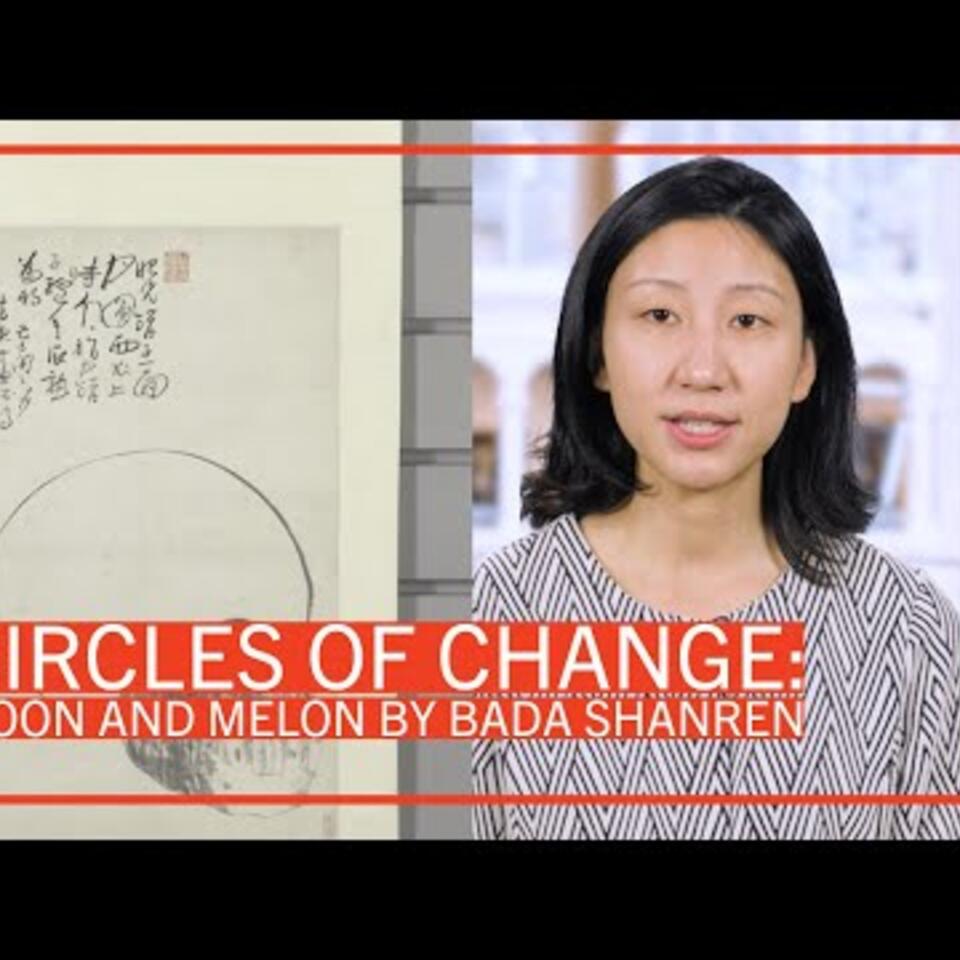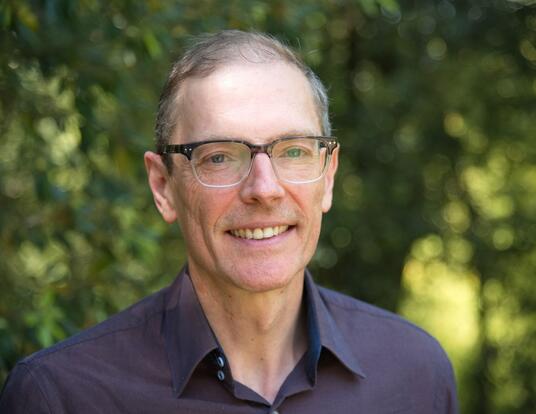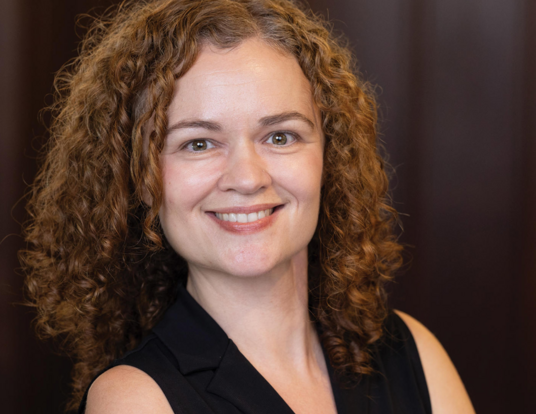In Search of Beauty
How Funlayo Wood’s search for spiritual meaning sheds light on a religion long hidden

Written above the door of Funlayo Wood’s office is the Yoruba proverb Iwa l’ewa, “character is beauty.” For those in the Yoruba religion Iwa l’ewa is more than just a proverb, it is their highest goal. Character, particularly gentle character (iwa pele) and good character (iwa rere), is what practitioners seek first.
For Wood, a doctoral candidate in African and African American Studies with an area of study in religion, the words Iwa l’ewa are a constant reminder that character is what makes a person beautiful. “My beauty is in how I treat people, how I relate to people,” Wood explains.
Spiritual and Scholarly Journeys
Growing up in the Baptist church, Wood always felt that there was something missing. Like many teenagers, she and her friends discovered Wicca, runes, and tarot cards before moving on to explore other earth-based spiritualities that also focused on transformation, always looking for a form of worship that felt right.
During a summer study abroad trip to Ghana in 2005, Wood, then an undergraduate at the City University of New York, visited an Akan spiritual ritual at the Black and White Shrine in Kumasi. The chanting, the drumming, the dancing woke up something within her. “I began to sweat and cry. It was as if all the waters in my body reacted to the ritual,” Wood remembers.
Back in New York, Wood felt like everyone she met after her experience in Ghana was somehow connected to Ifá-Òrisà, the indigenous religion of the Yoruba. “They say that when the student is ready, the teachers appear,” Wood laughs recollecting the unexpected coincidence. During the next years, Wood became more deeply involved with the òrisà tradition and this culminated in 2008 when, a few days after her graduation, she traveled to Nigeria to become an òrisà priestess, or olorisa.
Students pursue PhDs for a variety of reasons and for Wood, the decision to come to Harvard was not simply because it benefits both her work as a scholar of Ifá-Òrisà and as an òrisà priestess, but because, once again, she felt that something was missing. “In my spiritual journeys, I noticed how little I had learned about African spirituality and also how little information was available at the time,” Wood explains.
Since Wood’s move to Harvard, she has seen an explosion in the amount of information available on African spirituality. And while she looks forward to contributing to the continuation of this explosion, she sees her real mission as demystifying these traditions, which often have negative connotations attached to them.
Scholar-Activist
During and immediately after the slave trade, African religious traditions went underground for a variety of reasons, such as political oppression and the very real fear of reprisal and death. Since then, a veil of secrecy has hung over them, adding to the sense of “otherness” that surrounds many of these traditions.
“Part of what I do as a practitioner and a scholar is just be,” Wood says. By being visible and by encouraging other practitioners to do so, she hopes to normalize African spirituality and bring it into the open. One of the mediums that Wood has gravitated toward in this mission, are documentaries, which she describes as “a way to leave where you are and go to another place without actually having to go there.”
PBS’ Sacred Journeys, which follows Americans on six different religious pilgrimages, was Wood’s first foray into documentaries and the magic of television. “You film for three days and it gets whittled down to a 50-minute episode,” she jokes. Wood’s primary advisor, professor Jacob Olupona, who is a professor of African Religious Traditions at Harvard Divinity School and of African and African American Studies in the Faculty of Arts and Sciences, put her in contact with the PBS producers. Soon after, Wood, two young initiates, and the PBS crew travelled to Lagos, Nigeria, to attend the Osun-Oshogbo Festival, which celebrates the òrisà Osun, a Yoruba goddess who embodies fertility, civilization, and feminine power.
When the episode aired, Wood was pleasantly surprised with the result. “Even though it is PBS, you never know how producers will put things together, particularly because African spirituality is so often misunderstood and sensationalized,” she explains. The feedback Wood received from other practitioners, thanking her for the positive depiction of their traditions, reinforced the power of documentaries and the importance of her mission to advocate for her community.
“Doing a PhD is not just about producing a manuscript for the ivory tower; it is about affecting people’s lives.”
The Voice of God
There are moments in your life that can only be described as surreal. For Wood, the most recent may have been Morgan Freeman blotting sweat from her face. Wood and her mentor, Awo Chief Oluwole Ifakunle, head of the Ile Omo Ope Shrine in New York, are highlighted in an episode of Freeman’s National Geographic show The Story of God, which is in its second season.
Different from Sacred Journeys, where each episode was dedicated to a single religion, in The Story of God, Freeman explores a single concept, such as “Creation” or “Why Does Evil Exist?” across a number of different religions. Wood’s episode, which premiered January 30, 2017, is called “Proof of God” and in it, Freeman investigates how different religions feel God and what they see as proof of God’s existence. In the òrisà tradition, Wood explains, Ifá divination is a way practitioners communicate with God and the divine. “It allows us to align ourselves with where we are supposed to be in the universe.”
But, unfortunately, documentaries are not all-powerful. African spirituality is living a strange moment. Scholarship about it has flourished and it has been embraced by pop culture—picture Beyoncé dressed as the òrisà Osun in “Hold Up.” Yet, at the same time, it is the subject of a growing number of hate crimes in many countries. “In order to be affected by anything, a documentary or a personal story, you have to be at least willing to hear it, which many, sadly, are not,” Wood laments.
Wood and other scholars of African religions are helping practitioners of African spirituality respond to these attacks, making sure the rest of society hears them. To Wood, this scholar-activist work is essential and brings her some of her deepest joy. “I believe that if you are a scholar who works with people and with communities and you are not willing to help those communities when they need you, then what are you doing a PhD for?” Wood asks. Iwa l’ewa, indeed.
Get the Latest Updates
Join Our Newsletter
Subscribe to Colloquy Podcast
Simplecast





